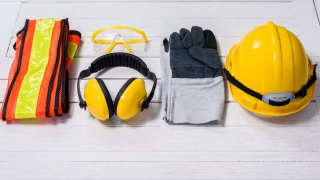
The balance between knowledge and experience in the construction industry is crucial for ensuring safety, efficiency, and high-quality outcomes. While experience provides hands-on expertise, theoretical knowledge gained through proper education and training lays the foundation for success. This article explores the significance of both elements and why proper training is indispensable for aspiring professionals in the field.
Knowledge vs. Experience in Construction
Knowledge encompasses the principles, regulations, and technical details required in construction work. It includes understanding building codes, safety regulations, material properties, and project management strategies. Training institutions, such as Builders Institute, provide structured learning to equip students with essential information before stepping onto a worksite.
On the other hand, experience comes from real-world application. Skilled professionals develop expertise through practical exposure, problem-solving, and on-site decision-making. However, relying solely on experience without proper education can lead to costly mistakes, legal issues, and safety hazards.
The Importance of Proper Training
- Safety First: The construction industry is inherently hazardous. Proper training ensures workers understand occupational health and safety regulations, reducing workplace accidents and legal liabilities.
- Regulatory Compliance: Training programs help professionals stay updated on industry standards and legal requirements, ensuring projects meet compliance guidelines.
- Technical Skills Development: Courses such as the White Card training and Certificate IV in Building and Construction provide essential skills, from risk assessment to project management.
- Confidence and Competency: Proper education boosts confidence, helping individuals communicate effectively with builders, clients, and regulatory bodies.
- Career Advancement: Employers prefer candidates who have both formal training and hands-on experience, increasing job opportunities and career progression.
- Environmental and Sustainable Practices: Training programs now incorporate sustainable construction techniques, teaching workers to use eco-friendly materials, reduce waste, and comply with environmental standards.
The Growing Demand for Skilled Workers in Construction
As the construction industry evolves, the demand for skilled workers continues to rise. With ongoing infrastructure projects and housing developments across Australia, companies are looking for trained professionals who can adapt to new technologies and methods. Training institutions, like Builders Institute, play a vital role in preparing workers for the industry by offering nationally recognized qualifications and hands-on learning experiences.
Moreover, the construction workforce is aging, and new generations must be equipped with the right skills to fill the gap. Investing in professional development ensures that businesses have a steady supply of competent workers ready to meet the industry’s demands.






